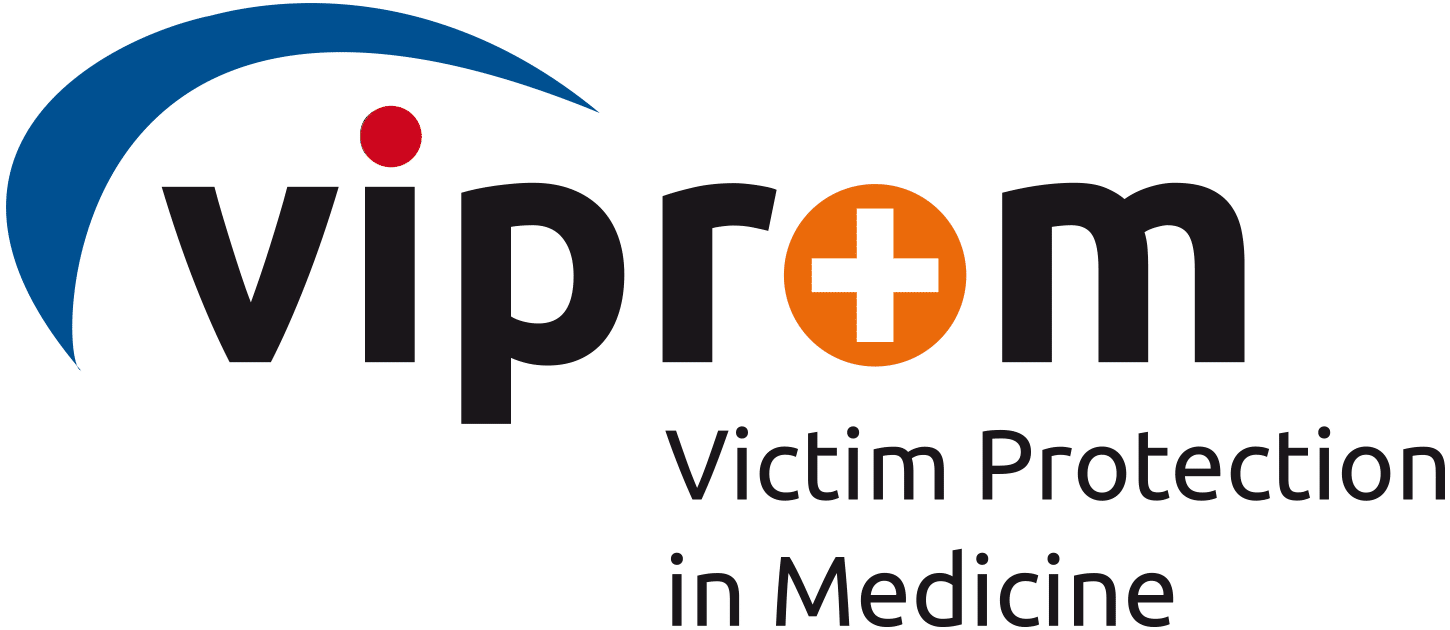Overview
Background
Domestic violence continues to be a serious problem in the European Union. Many international policies have addressed domestic violence as a serious (public) health issue and the need to provide better medical support for victims. This can be achieved for example through tailored advocacy measures combined with ongoing training for medical professionals. Better medical support is of particular importance, as a large proportion of victims experiencing violence initially turn to health services. Thus, it is of major importance that medical professionals being frontline responders have appropriate knowledge and feel capable to support victims beyond their medical duty.

Sustainably implementing and organisationally embedding specialised trainings often pose a major challenge in the health sector. This contrasts with the need for ongoing training often expressed by medical staff. To address this issue VIPROM develops training curricula for medical professionals (nurses, midwives, medical doctors, and dentists) and medical and dental students in close cooperation with medical faculties, hospitals, research organisations, medical educators, and victim protection organisations in five European countries (Austria, Germany, Greece, Italy, Sweden).
In a first step, VIPROM will identify the structural hurdles for implementation of existing trainings, the causes for slow progress in the sensitisation of medical sector stakeholder groups, as well as the needs of specific groups of medical sector professionals (WP2). In parallel, VIPROM will compile existing training content, and expand it by adding tailored curricula for stakeholder groups such as nurses, midwives, medical doctors, dentists, and medical and dental students (WP3). In the following, national-level trainers will be made familiar with the didactic concepts of the curricula, as well as the materials relevant to each stakeholder group. The trainers trained through the VIPROM project will pilot the curricula in each of the partner countries, and act as competence centres and champions of the curricula, ensuring the sustainability beyond the runtime of the project (WP4). These pilots will be further used to evaluate the developed curricula by pre- and post-training questionnaires, focus groups and interviews with participants and trainers to assess the sustainability of the training results and to feed them back into the development and further optimisation of the curricula (WP5).
Successful training will increase awareness and personal commitment of all stakeholders involved towards domestic violence. In combination with the sustainable implementation of the developed trainings through a “train-the-trainer” approach, VIPROM contributes to the long-term organisational implementation of victim protection work and to structural change in the medical sector.

Objectives
The main aim of VIPROM is to develop sustainable, organisationally embedded, and institutionally recognised training based on a combination of needs assessments and existing good practices for professionals from different medical fields in five EU countries.

The objectives of VIPROM are as follows:
- Developing the curricula in participatory exchange with health professionals to tailor it to their needs stemming from their specific medical setting (e.g., emergency clinic, maternity ward) as well as country-, culture- and organisation-specific differences. Previous projects have demonstrated that participatory and culturally sensitive approaches are vital for sustaining intervention programmes in the long term.
- Implementing these curricula at the level of basic vocational/academic training and at the level of further training sets the foundation for a “trajectory model” in the medical field. This contributes to the broader structural institutionalisation of victim protection in work in the medical field.
- Delivering a train-the-trainer program has been identified as one method for ensuring sustainability of the intervention as these kinds of interventions present a feasible and successful method of organisationally embedded knowledge transfer even in highly sensitive contexts.
In a nutshell, VIPROM provides frontline responders from the health care sector with training opportunities and medical educators in different European countries and different medical institutions with the capacity to implement the curricula developed in VIPROM. Accompanied by scientific research and rigorous evaluation, VIPROM will offer a best practice approach that can serve as a model for medical institutions in other European countries.
